
Discover the Heart of Sierra Leone: Magburaka
Nestled in the heart of Sierra Leone, Magburaka is a treasure trove of cultural heritage and natural beauty. This charming city offers a unique blend of traditional Sierra Leonean culture and the lush landscapes of the Northern Province. Visitors can immerse themselves in the local way of life, with friendly locals eager to share their customs and traditions. Magburaka is known for its vibrant markets, where you can find everything from fresh produce to handmade crafts. The city's bustling central market is a must-visit, offering a sensory overload of sights, sounds, and smells. Here, you can taste local delicacies and shop for unique souvenirs to take back home. Nature lovers will be captivated by the surrounding scenery. The city is located on the banks of the Rokel River, providing stunning views and opportunities for peaceful riverside walks. The nearby Bumbuna Falls, just a short drive away, is another natural wonder that shouldn't be missed. For those interested in history, Magburaka is home to several historical sites, including colonial-era buildings and ancient landmarks that tell the story of the region's past.
Local tips in Magburaka
- Visit the central market early in the morning to experience it at its liveliest and get the freshest produce.
- Hire a local guide for a more in-depth understanding of Magburaka's history and hidden gems.
- Carry cash, as many local vendors do not accept credit cards.
- Dress modestly to respect local customs and traditions.
- Stay hydrated and use insect repellent, especially when exploring outdoor areas like Bumbuna Falls.
Discover the Heart of Sierra Leone: Magburaka
Nestled in the heart of Sierra Leone, Magburaka is a treasure trove of cultural heritage and natural beauty. This charming city offers a unique blend of traditional Sierra Leonean culture and the lush landscapes of the Northern Province. Visitors can immerse themselves in the local way of life, with friendly locals eager to share their customs and traditions. Magburaka is known for its vibrant markets, where you can find everything from fresh produce to handmade crafts. The city's bustling central market is a must-visit, offering a sensory overload of sights, sounds, and smells. Here, you can taste local delicacies and shop for unique souvenirs to take back home. Nature lovers will be captivated by the surrounding scenery. The city is located on the banks of the Rokel River, providing stunning views and opportunities for peaceful riverside walks. The nearby Bumbuna Falls, just a short drive away, is another natural wonder that shouldn't be missed. For those interested in history, Magburaka is home to several historical sites, including colonial-era buildings and ancient landmarks that tell the story of the region's past.
When is the best time to go to Magburaka?
Iconic landmarks you can’t miss
Tacugama Chimpanzee Sanctuary
Discover Tacugama Chimpanzee Sanctuary: A unique wildlife experience dedicated to the rescue and rehabilitation of chimpanzees near Freetown.
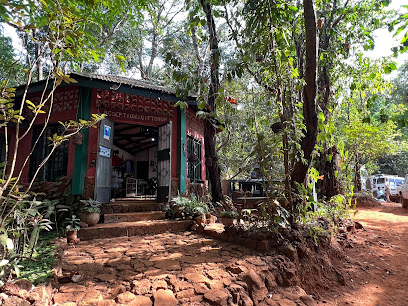
Kangari Hills Forest Reserve
Explore the breathtaking beauty and rich biodiversity of Kangari Hills Forest Reserve, a serene national park in Sierra Leone.
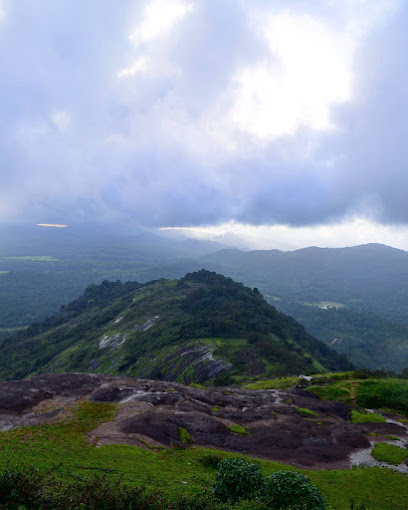
Gola Forest Reserve
Discover the enchanting biodiversity of Gola Forest Reserve, a national treasure in Sierra Leone, where adventure meets conservation.
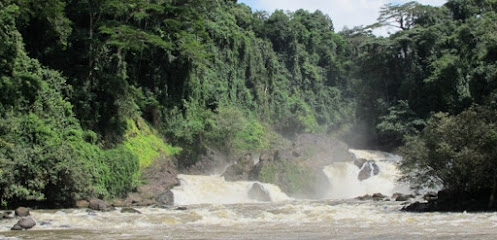
Town Center Tower
Explore the Town Center Tower in Moyamba, a stunning historical landmark showcasing artistic design and cultural significance, perfect for sightseeing and photography.
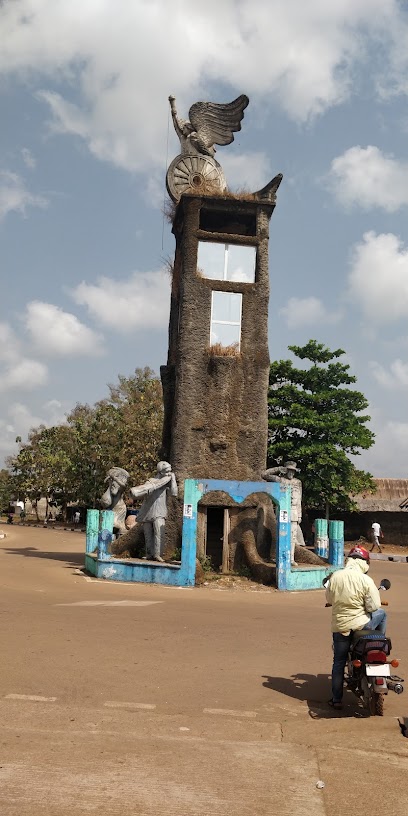
Sierra Leone West Africa
Experience the rich culture and stunning landscapes of Sierra Leone, a hidden gem in West Africa, perfect for adventurous travelers and cultural enthusiasts alike.
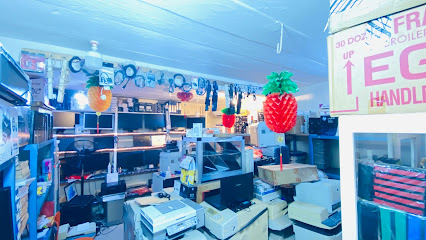
Magburaka Local Miners Union Sierra Leone
Explore the rich mining heritage and vibrant culture at Magburaka Local Miners Union, a key part of Sierra Leone's economic history.
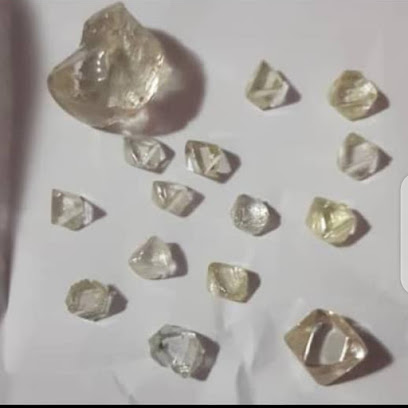
Unmissable attractions to see
Sierra Leone Peace Museum
Discover the profound history of Sierra Leone at the Peace Museum, where stories of resilience and reconciliation come to life.
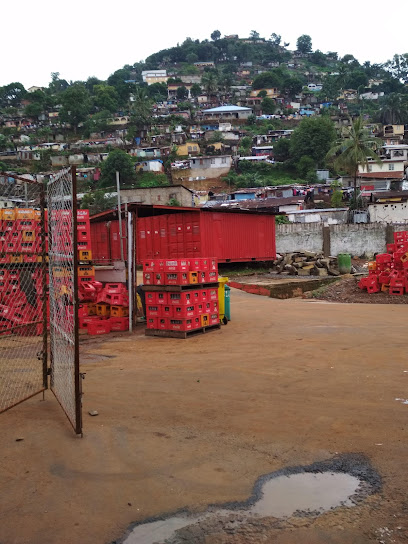
Bamba Beach (Mugomeh Investment)
Discover the serene beauty of Bamba Beach in Moyamba District, where golden sands and welcoming locals create an unforgettable escape.
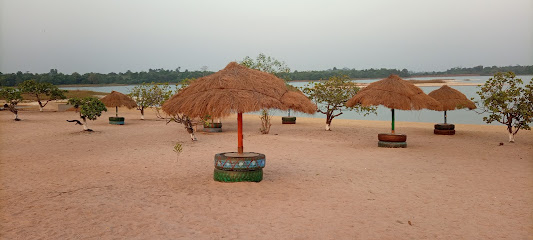
Makeni Central Mosque مسجد
Explore the Makeni Central Mosque, a serene and stunning cultural landmark in Sierra Leone, perfect for immersing in local traditions and spirituality.
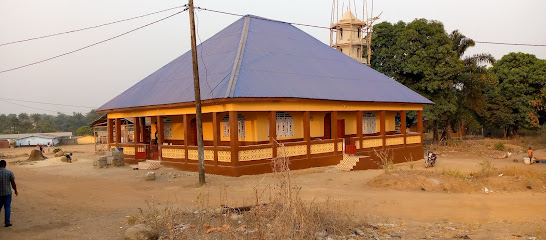
Outamba-Kilimi National Park Entrance
Explore the breathtaking wilderness of Outamba-Kilimi National Park in Sierra Leone, a true paradise for nature enthusiasts and adventure seekers.
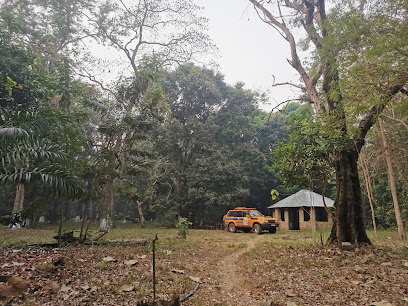
Rogberi town
Explore Rogberi Town, a charming destination in Sierra Leone that offers rich cultural experiences and stunning natural beauty.
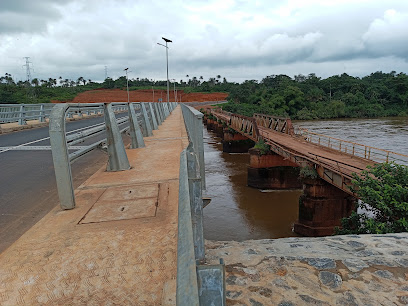
Mamunta Mayosso Wildlife Sanctuary
Explore the rich biodiversity of Mamunta Mayosso Wildlife Sanctuary, a pristine wildlife refuge in Sierra Leone perfect for nature lovers and adventure seekers.

Mathorie Retreat
Discover tranquility and natural beauty at Mathorie Retreat, a serene haven in Rotifunk, Sierra Leone, perfect for relaxation and rejuvenation.
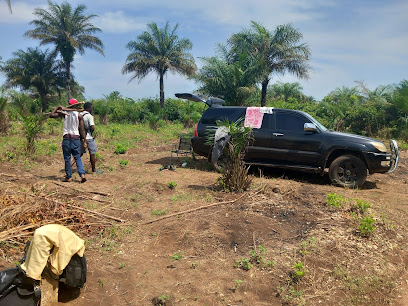
Kasewe Forest Reserve
Discover the serene beauty of Kasewe Forest Reserve, a nature lover's paradise in the heart of Sierra Leone's lush landscapes.
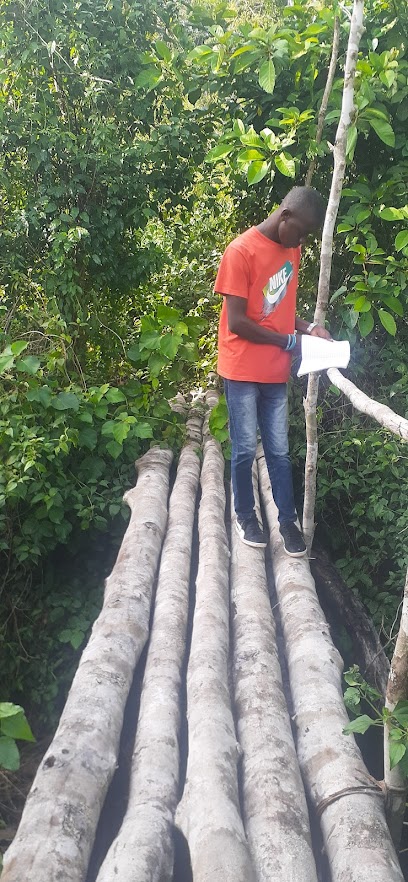
Adam’s Mountain Peak
Discover the breathtaking trails and stunning vistas of Adam's Mountain Peak, a hiking haven in Sierra Leone's Batpela region, perfect for nature lovers and adventurers alike.

Essential places to dine
Ruri's Restaurant
Discover the essence of Sierra Leonean cuisine at Ruri's Restaurant in Bo - where every dish tells a story.
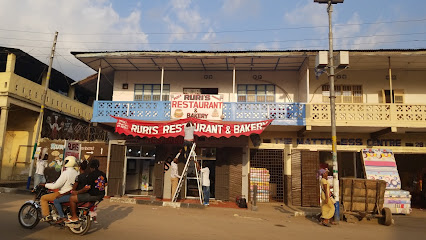
Choices
Discover culinary delights at Choices in Makeni – where local flavors meet international cuisine in a warm and inviting atmosphere.
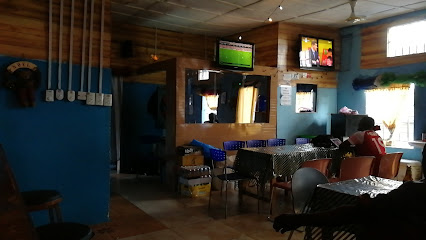
Subish Fast Food
Experience the taste of local cuisine and international favorites at Subish Fast Food in Makeni - where flavor meets convenience.
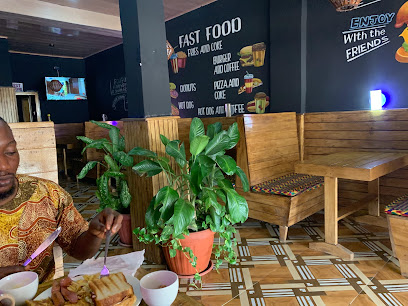
Pepper Goat Soup
Discover the authentic taste of Sierra Leone at Pepper Goat Soup in Kamakwie – home of exquisite goat soup and local culinary delights.
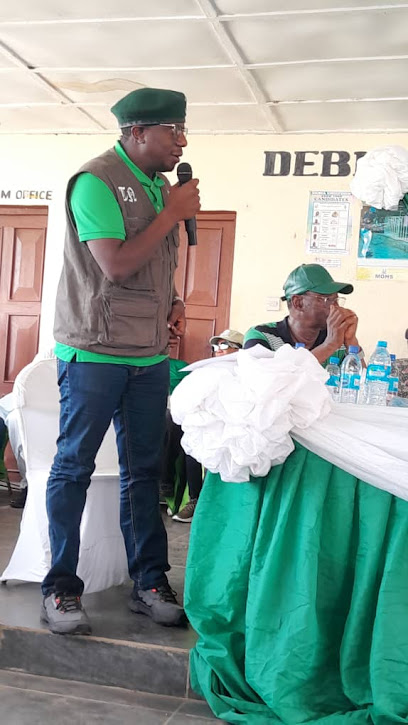
Vicanda Parlour Restaurant
Discover Vicanda Parlour Restaurant in Bo - where authentic Sierra Leonean flavors meet warm hospitality in a cozy setting.
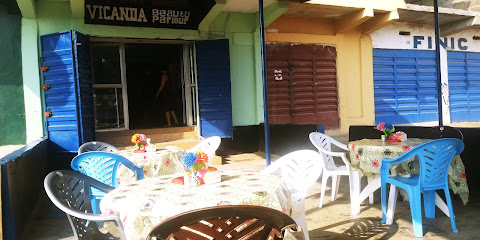
Restaurat Luz Andina-UNI
Experience the rich flavors of local cuisine at Restaurant Luz Andina-UNI in Bo, where every meal tells a story.

City Bar Restorant
Discover authentic Sierra Leonean cuisine at City Bar Restaurant in Makeni - where flavor meets friendly hospitality.
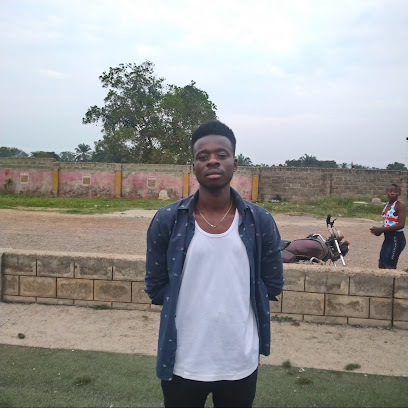
Taiama
Experience authentic Sierra Leonean cuisine at Taiama - where delicious flavors meet warm hospitality in Bo.

Yeanne's Restaurant and Multi Purpose Hall
Experience authentic Sierra Leonean flavors at Yeanne's Restaurant and Multi Purpose Hall in Makeni – where delicious meets delightful!
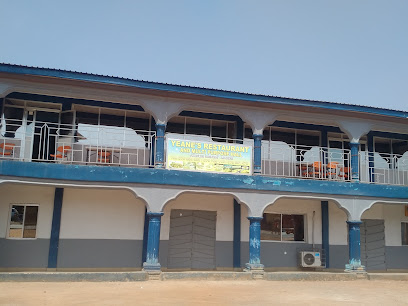
Hancess Bar and Restaurant
Experience the vibrant culinary scene at Hancess Bar and Restaurant in Bo – where local flavors meet global tastes.
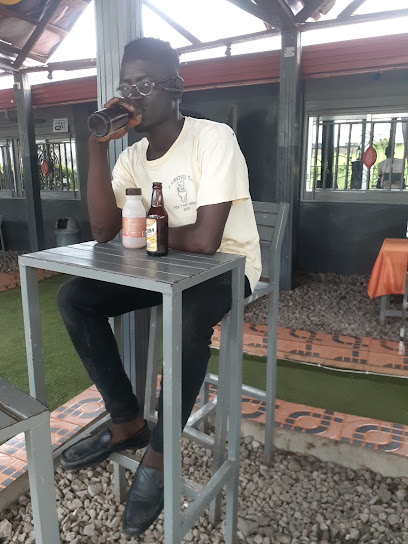
Americana Bakery and Cafe
Experience local flavors at Americana Bakery and Cafe in Bo – where delightful baked goods meet authentic Sierra Leonean cuisine.
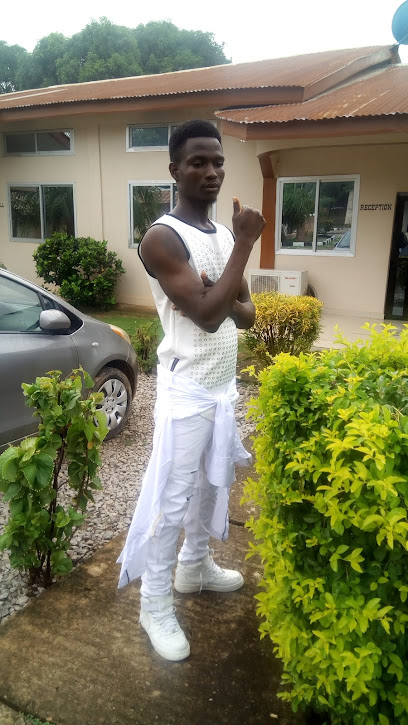
Magburaka
Experience authentic Sierra Leonean cuisine at Magburaka - where every meal tells a story.
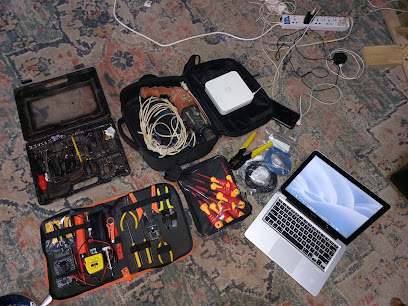
Abundant Fast Food Restaurant
Discover quick bites and local flavors at Abundant Fast Food Restaurant in Makeni - perfect for travelers seeking delicious meals on-the-go.

Mado's Bar & Restaurant
Experience authentic Sierra Leonean cuisine at Mado's Bar & Restaurant in Makeni - where every dish tells a story.
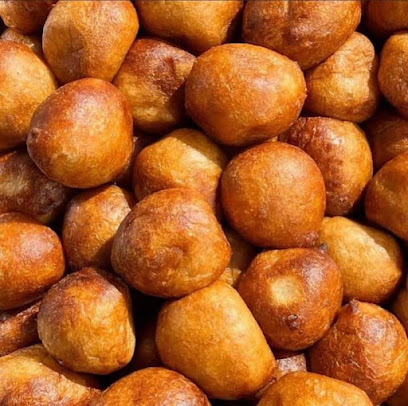
O
Discover authentic Sierra Leonean cuisine at this delightful Makeni restaurant showcasing local flavors and culinary traditions.
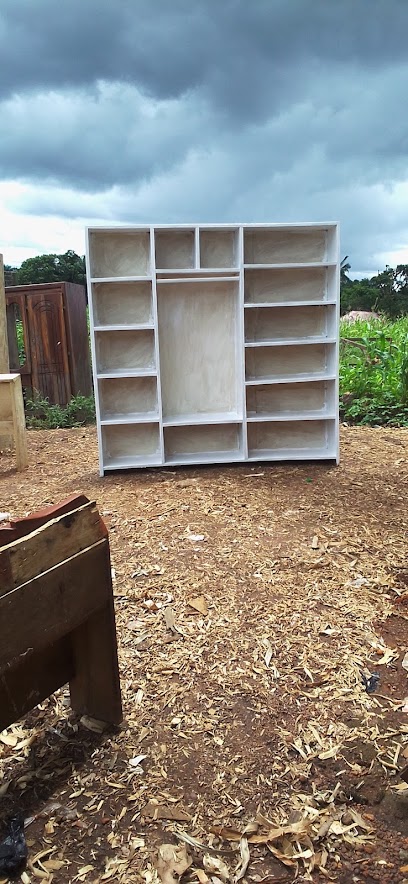
Markets, malls and hidden boutiques
Makeni Mall
Explore Makeni Mall: Your Ultimate Shopping and Dining Destination in Sierra Leone, Blending Local Culture with Modern Retail Experiences.
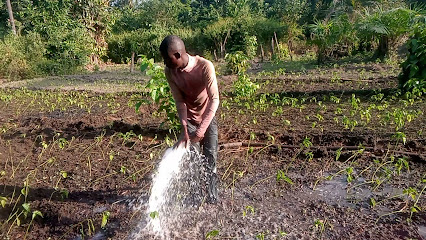
Congo Town Road
Explore the bustling electronics hub of Congo Town Road in Makeni for a unique shopping and cultural experience in Sierra Leone.
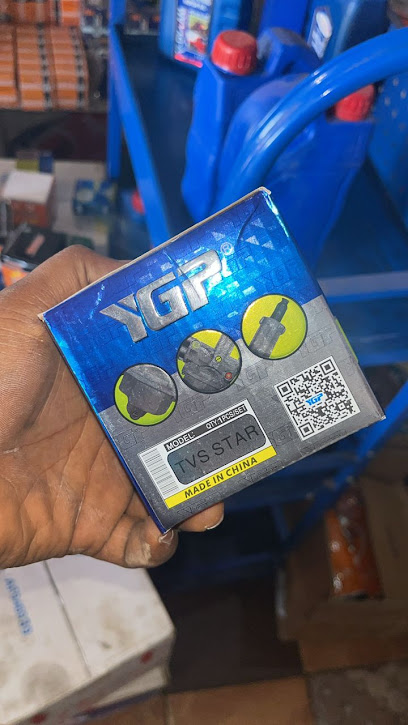
Vitafoam outlet Magburuka
Explore the comforts of quality sleep solutions at Vitafoam Outlet Magburuka, where every mattress is designed for your ultimate comfort.
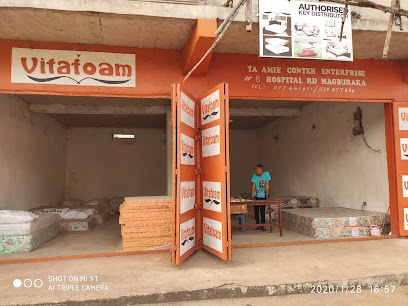
Flower Corner
Explore the vibrant Flower Corner in Makeni, where local crafts and stunning floral arrangements meet Sierra Leonean culture.

Jay Spot and Friends Boutique
Explore the vibrant styles and artisan treasures at Jay Spot and Friends Boutique in Makeni, a unique shopping destination for travelers seeking local flair.
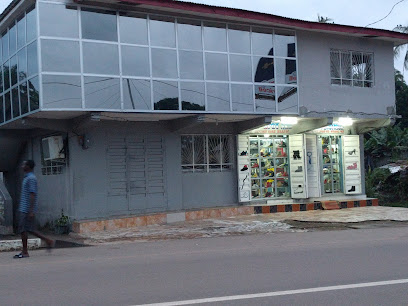
Nyanda Enterprise
Explore Camp Sierra’s hidden gem, Nyanda Enterprise, a charming general store showcasing local goods and culture for tourists.

Leo Mount General Trading Sierra Leone.
Explore a variety of organic products and health foods at Leo Mount General Trading in Makeni, Sierra Leone, a hub for health-conscious travelers.

Aminadul Enterprise
Discover the charm of local goods and unique finds at Aminadul Enterprise, your go-to general store during your travels.

Luk Man Mential Workshop
Explore the vibrant Luk Man Mential Workshop in Makeni, Sierra Leone, where local crafts meet culinary delights for an unforgettable shopping experience.
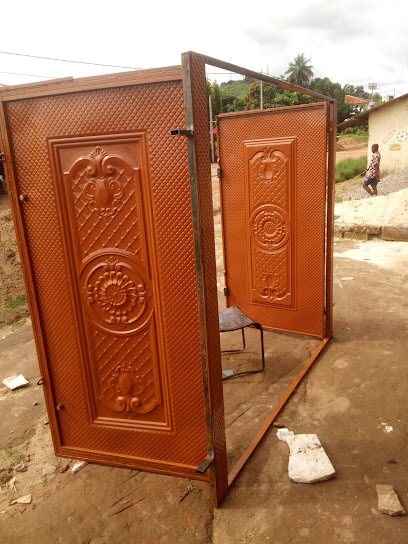
S K Number One Electricals Shop
Explore the best electronics at S K Number One Electricals Shop in Makeni, where quality meets exceptional customer service.
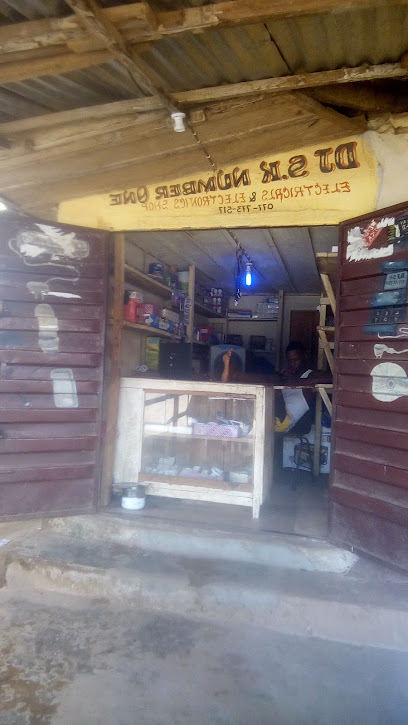
Njala Point Post Office road
Explore Njala Point Shopping Mall in Magburaka for a delightful blend of shopping, dining, and local culture in a vibrant atmosphere.
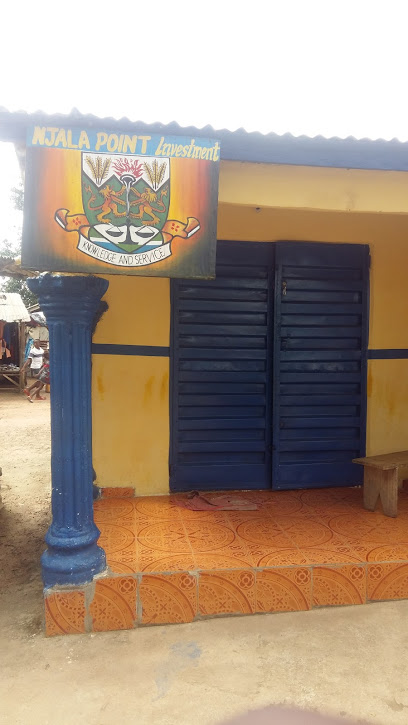
Alfantic Boutique
Explore Alfantic Boutique in Makeni for unique fashion and local crafts that celebrate Sierra Leone's vibrant culture and artistry.
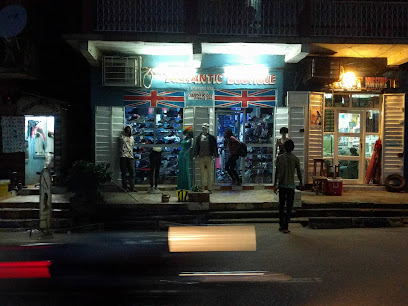
New Life Enterprise
Discover the heart of Makeni at New Life Enterprise, your go-to grocery store for local flavors and daily essentials.

The Kamara Family House
Discover unique home goods and local crafts at The Kamara Family House in Makeni, a treasure trove for tourists seeking authentic Sierra Leonean culture.

Gold
Explore Gold in Freetown, your ultimate rugby store for gear, apparel, and community events, celebrating the spirit of rugby in Sierra Leone.

Essential bars & hidden hideouts
The Clubhouse
Experience the lively spirit of Makeni at The Clubhouse, where great drinks and a friendly atmosphere await every visitor.
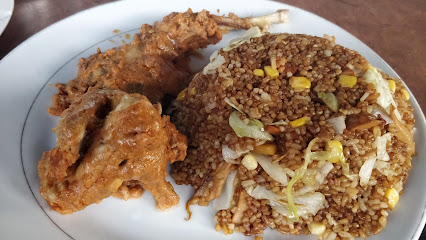
Obama's Bar and Restaurant
Discover the vibrant spirit of Bo at Obama's Bar and Restaurant, where local flavors meet a lively social scene.
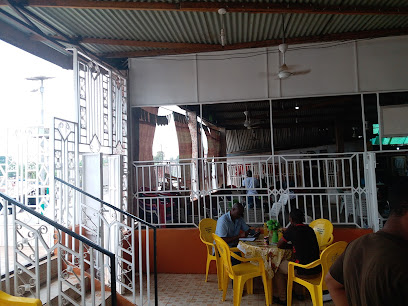
Magburaka
Explore the vibrant culinary scene of Magburaka, where local flavors and warm hospitality create an unforgettable dining experience.
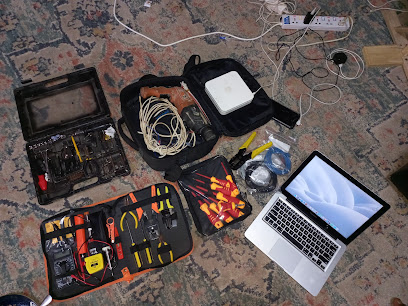
Mado's Bar & Restaurant
Explore Makeni's culinary scene at Mado's Bar & Restaurant, where local flavors meet warm hospitality in a vibrant setting.
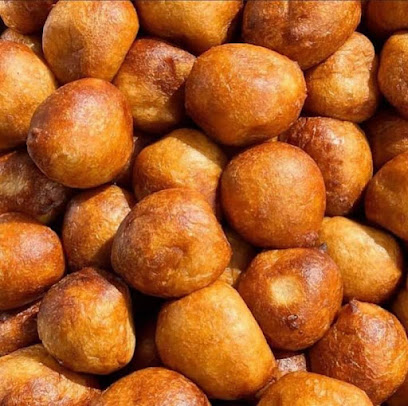
Bakarr Bar Restaurant
Discover the lively atmosphere of Bakarr Bar Restaurant in Kabala, where local culture meets delicious cuisine and refreshing drinks.

Masumuneh Enterprise Binkolo Town
Discover the lively atmosphere of Masumuneh Enterprise, a must-visit bar in Binkolo Town, offering local flavors and a vibrant social scene.
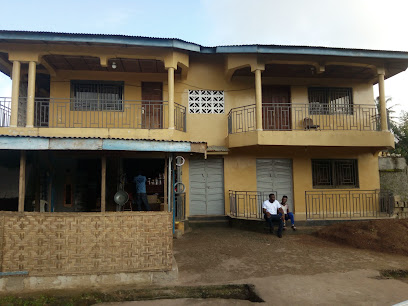
KBAR BAR
Discover the vibrant atmosphere of KBAR BAR in Makeni, where local culture meets a lively nightlife experience.

Magburaka Local Miners Union Sierra Leone
Explore the rich mining culture of Sierra Leone at Magburaka Local Miners Union, where tradition meets community.
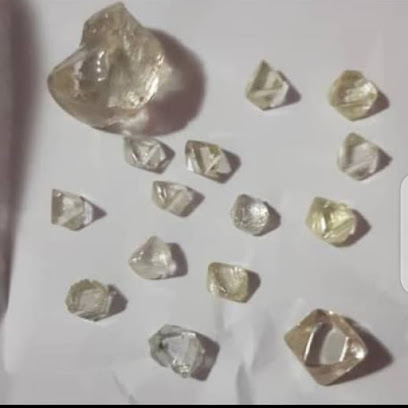
Salone bar Magburka
Discover the lively atmosphere of Salone bar Magburka, where local culture and camaraderie blend seamlessly in the heart of Magburaka.

AB. Hamza investment point
Experience the vibrant nightlife at AB. Hamza Investment Point, where refreshing drinks and local culture meet in Magburaka.
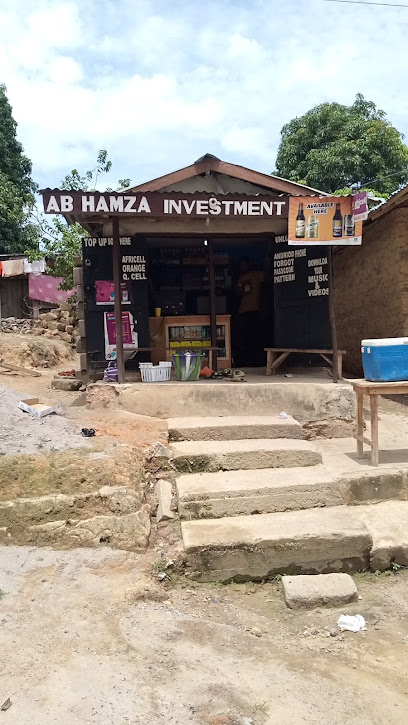
Fishermen Basket
Experience the vibrant ambiance and local flavors at Fishermen Basket, a must-visit bar in Makeni, Sierra Leone.

Usher's Bar
Experience the vibrant nightlife of Makeni at Usher's Bar, where local drinks, music, and culture come together for an unforgettable evening.

Da-Bills
Experience the charm of Da-Bills, a wine bar in Makeni, where exquisite wines and a cozy atmosphere await every visitor.
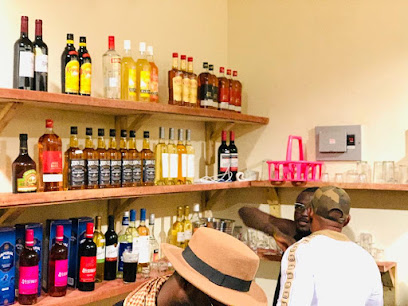
MG's Bar
Experience the vibrant nightlife and local culture at MG's Bar on the Lunsar-Makeni Highway.
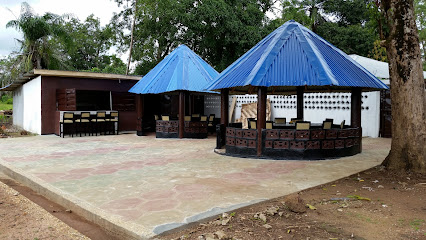
Local Phrases
-
- HelloYɛŋki
[YEHNG-kee] - GoodbyeAr de go now
[ah deh goh now] - YesAwo
[AH-woh] - NoEhn
[ehn] - Please/You're welcomeNa ya
[nah yah] - Thank youTenki
[TEHN-kee] - Excuse me/SorryNar mek yu
[nah mek yoo] - How are you?How yu de?
[how yoo deh?] - Fine. And you?All right. Yu sef?
[all right. yoo sehf?] - Do you speak English?Yu sabi tok Inglish?
[yoo sah-bee tohk Ing-lish?] - I don't understandAh no sabi
[ah noh sah-bee]
- HelloYɛŋki
-
- I'd like to see the menu, pleaseAh go lef pan di menu, abeg
[ah goh lehf pahn dee meh-noo, ah-behg] - I don't eat meatAh no de eat meet
[ah noh deh eet meht] - Cheers!Nar di wef o!
[nah dee wehf oh!] - I would like to pay, pleaseAh go pay, abeg
[ah goh peh, ah-behg]
- I'd like to see the menu, pleaseAh go lef pan di menu, abeg
-
- Help!Sos
[sohs] - Go away!Waka
[wah-kah] - Call the Police!Kol polis!
[kohl poh-lees!] - Call a doctor!Kol dokita!
[kohl doh-kee-tah!] - I'm lostAh loss
[ah loss] - I'm illAh sik
[ah seek]
- Help!Sos
-
- I'd like to buy...Ah go buy...
[ah goh bai...] - I'm just lookingAh jus di luk
[ah joos dee look] - How much is it?Ehn dey tok am?
[ehn deh tohk ahm?] - That's too expensiveEhn too cost
[ehn tooh kohst] - Can you lower the price?Yu fit bring di price down?
[yoo fit breen dee price dohn?]
- I'd like to buy...Ah go buy...
-
- What time is it?Na whoch time?
[nah wohch time?] - It's one o'clockNa wan don
[nah wahn dohn] - Half past (10)Na haf ten
[nah hahf tehn] - MorningMornin
[mohr-neen] - AfternoonAfanoon
[ah-fah-noohn] - EveningIvinin
[ee-vee-neen] - YesterdayYestide
[yeh-stee-deh] - TodayTideh
[tee-deh] - TomorrowTamoro
[tah-moh-roh] - 1Wan
[wahn] - 2Tu
[too] - 3Tri
[tree] - 4Fo
[foh] - 5Fayf
[fayf] - 6Seks
[sehks] - 7Seven
[seh-ven] - 8Eit
[ayt] - 9Nain
[nayn] - 10Ten
[tehn]
- What time is it?Na whoch time?
-
- Where's a/the...?Pan di...
[pahn dee...] - What's the address?Who am na di adris?
[who am nah dee ad-rees?] - Can you show me (on the map)?Yu fit sho mi?
[yoo fit shoh mee?] - When's the next (bus)?When di nex wan?
[wehn dee nehks wahn?] - A ticket (to ....)Wan tiket (go ...)
[wahn tee-keht (goh ...)]
- Where's a/the...?Pan di...
History of Magburaka
-
Magburaka, situated in the Tonkolili District of Sierra Leone, was founded in the early 19th century. It served as an important settlement for the Temne people, who are indigenous to the region. The town's strategic location along the Rokel River made it a vital trading hub, facilitating the exchange of goods such as kola nuts, palm oil, and other agricultural products.
-
During the late 19th and early 20th centuries, Magburaka came under British colonial rule. The British established administrative posts and schools in the town, including the prestigious Magburaka Boys Secondary School, which became one of the premier educational institutions in Sierra Leone. The colonial era saw the introduction of new infrastructural developments, although it also brought challenges such as forced labor and resource exploitation.
-
Sierra Leone gained independence from British colonial rule on April 27, 1961. Magburaka continued to develop as a key town in the post-colonial period. The introduction of new governance structures and educational reforms played a significant role in shaping the town's contemporary identity. However, the town, like many others in the country, faced economic and social challenges during this time.
-
The Sierra Leone Civil War, which lasted from 1991 to 2002, had a profound impact on Magburaka. The town witnessed significant disruptions as rebel forces and government troops vied for control. Many residents were displaced, and infrastructure suffered considerable damage. The war left lasting scars, but the resilience of the people of Magburaka has been instrumental in the town's recovery and rebuilding efforts.
-
Today, Magburaka is a vibrant town that continues to thrive despite its historical challenges. The town is known for its educational institutions, including the Magburaka Boys Secondary School and various vocational training centers. Agriculture remains a cornerstone of the local economy, with residents engaging in the cultivation of rice, cassava, and other crops. Cultural festivals and traditional practices also play a vital role in maintaining the town's rich heritage.
-
Magburaka is a hub of cultural activities, reflecting the traditions of the Temne people. Festivals such as the 'Rokel River Festival' celebrate the town's historical connection to the river and its significance in local life. Traditional music, dance, and storytelling are integral to these events, offering visitors a glimpse into the town's vibrant cultural tapestry.
Magburaka Essentials
-
Magburaka is located in the Tonkolili District in the Northern Province of Sierra Leone. The nearest international airport is Lungi International Airport in Freetown, approximately 200 kilometers away. From Freetown, you can take a private taxi or a public minibus (poda poda) to Magburaka. The journey typically takes around 4 to 5 hours by road. Alternatively, some travelers prefer to hire a private car for a more comfortable trip.
-
Magburaka is a moderately sized town, and many attractions can be reached on foot. For longer distances within the town, local taxis and motorcycle taxis (okadas) are readily available and relatively inexpensive. Public minibuses (poda podas) operate within the town and to surrounding areas. While renting a car is an option, it is advisable to hire a local driver who is familiar with the road conditions and traffic rules.
-
The official currency in Sierra Leone is the Sierra Leonean Leone (SLL). Credit cards are not widely accepted in Magburaka, so it is essential to carry cash. There are a few ATMs in the town, but it is advisable to withdraw sufficient cash in Freetown before traveling to Magburaka. Carry small denominations for easier transactions, especially in local markets and small shops.
-
Magburaka is generally safe for tourists, but it is important to take standard precautions. Avoid walking alone at night and keep an eye on your belongings in crowded places. Exercise caution when using okadas, as they can be involved in accidents. While Magburaka does not have specific high-crime areas targeting tourists, it is always best to stay vigilant and aware of your surroundings.
-
In case of emergency, dial 999 for immediate assistance. Magburaka has a local police station and medical facilities, including a hospital and pharmacies where you can purchase over-the-counter medications. It is recommended to have travel insurance that covers medical emergencies. For serious health issues, you may need to travel to Freetown for specialized care.
-
Fashion: Do dress modestly, especially when visiting religious sites. Avoid wearing revealing clothing. Religion: Do respect local customs and traditions. Always remove your shoes when entering a mosque. Public Transport: Do be respectful and give up your seat to elderly passengers. Don’t eat or drink on public transport. Greetings: Do greet people with a handshake. A friendly smile and a verbal greeting are also appreciated. Eating & Drinking: Do try local delicacies and accept food offerings graciously. Don’t refuse hospitality, as it is considered impolite.
-
To experience Magburaka like a local, visit the local markets where you can buy fresh produce and traditional Sierra Leonean goods. Engage with locals, as they are often friendly and willing to share stories about the town's history and culture. Don’t miss visiting the Bumbuna Waterfalls, which are a short drive away and offer a beautiful natural escape. For a unique experience, attend a local football match or cultural festival to immerse yourself in the community’s vibrant social life.
Nearby Cities to Magburaka
-
Things To Do in Port Loko
-
Things To Do in Kenema
-
Things To Do in Bonthe
-
Things To Do in Pujehun
-
Things To Do in Faranah
-
Things To Do in Conakry
-
Things To Do in Voinjama
-
Things To Do in Monrovia
-
Things To Do in Kakata
-
Things To Do in Gbarnga
-
Things To Do in Ganta
-
Things To Do in Buchanan
-
Things To Do in Sanniquellie
-
Things To Do in Quebo
-
Things To Do in Buba





